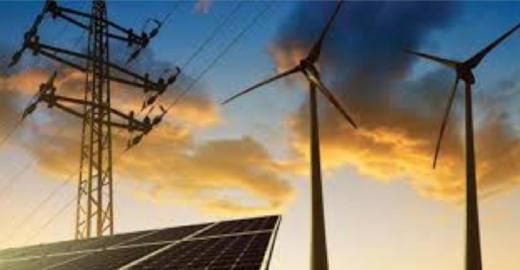By Chris Stone, PE, F.NSPE, F. ASCE
Member of the Virginia Joint Subcommittee on Recurrent Flooding and Adaptation
Resilient Virginia Board Member
 The United States has entered a new era in the fight against climate change. President Biden recently signed the largest climate bill in US history, which includes major investments in energy efficient housing, solar and wind technologies, and the electric vehicle industry. Last year’s trillion-dollar infrastructure bill included significant funding for the nation’s electric grid, clean transportation infrastructure and carbon capture technology. And the White House has taken a series of executive actions designed to speed our nation’s transition to clean energy.
The United States has entered a new era in the fight against climate change. President Biden recently signed the largest climate bill in US history, which includes major investments in energy efficient housing, solar and wind technologies, and the electric vehicle industry. Last year’s trillion-dollar infrastructure bill included significant funding for the nation’s electric grid, clean transportation infrastructure and carbon capture technology. And the White House has taken a series of executive actions designed to speed our nation’s transition to clean energy.
These federal investments direct millions in clean energy funding to state governments. But their economic impact will depend largely on the actions of states themselves.
Virginia could capitalize on this momentum and become a leader in clean energy industries of the future – creating hundreds of thousands of new, well-paying jobs. But for this to happen, state leadership must recognize the economic opportunities of this moment.
The Commonwealth is uniquely positioned to benefit from federal clean energy investments. We are nationally recognized for our workforce, have a strong manufacturing sector, and are home to one of the best ports in the country. Since Virginia joined the Regional Greenhouse Gas Initiative (RGGI) two years ago, the program has delivered the Commonwealth $378 million, which has supported flood prevention planning and projects and energy efficiency for low-income Virginians. The 2020 Virginia Clean Economy Act is also on track to deliver tens of thousands of clean-energy jobs for Virginians and their families.
Despite this tremendous potential, however, statewide climate progress is not a given. As the clean-energy industry rapidly grows, states are increasingly competing to attract new companies and jobs they create. If we want to attract these new companies and take advantage of federal investments, we need leadership that is committed to clean energy jobs.
It’s not clear that our state leaders are poised to seize this opportunity. The administration is attempting to remove Virginia from RGGI, which would eliminate a critical source for flood prevention funding. Hampton Roads, for example, could lose $1.5 billionby 2060 to flooding alone. State leaders have also avoided opportunities to partner with the federal government on offshore wind, a budding multi-billion dollar industry that could create tens of thousands of jobs.
We can’t afford to leave this money on the table. Offshore wind could create up to 14,000 new jobs in supply chain and turbine blade construction in the Commonwealth. In Southwest Virginia, ample manufacturing capacity could support offshore wind production and revive an economy once based entirely on coal. Several companies in Southwest Virginia have also expressed interest in converting coal plants to solar facilities and developing electric vehicle battery plants on unused land. Thanks to these assets, Virginia is in a solid position to lead the clean-energy transition and become a hub for clean energy jobs.
Virginia has also earned a reputation as one of the most business-friendly states in the country, with several major American companies located in our state. But today’s companies are increasingly concerned about their climate impact and want to locate and grow in states that will support their clean-energy initiatives. Demonstrated commitment to a clean-energy economy would make Virginia even more attractive to these businesses.
Inaction won’t just cost us economically. As a coastal state in the south, Virginia is vulnerable to sea level rise, extreme stormsand excessive heat. Hampton Roads expects to see over a foot of sea-level rise by 2050. Unless we prepare now, sea level rise alone could cost taxpayers up to $31 billion in the next 20 years, negatively impacting our families and businesses alike.
Climate news coverage is often about the environmental consequences of our collective inaction. But this moment is also an enormous opportunity to grow our economy and create 21st century jobs.
Virginia has the tools needed to lead this transformation. It is up to our Governor and the Virginia General Assembly to make it happen.
This article was originally published in The Virginian-Pilot and Daily Press on October 1, 2022.




